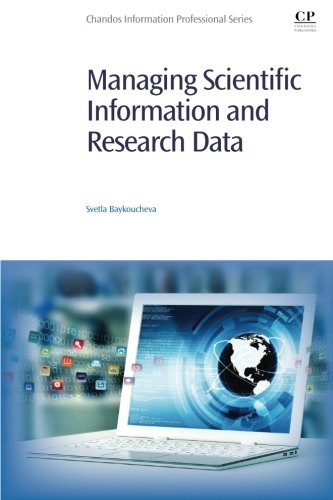

Most ebook files are in PDF format, so you can easily read them using various software such as Foxit Reader or directly on the Google Chrome browser.
Some ebook files are released by publishers in other formats such as .awz, .mobi, .epub, .fb2, etc. You may need to install specific software to read these formats on mobile/PC, such as Calibre.
Please read the tutorial at this link: https://ebookbell.com/faq
We offer FREE conversion to the popular formats you request; however, this may take some time. Therefore, right after payment, please email us, and we will try to provide the service as quickly as possible.
For some exceptional file formats or broken links (if any), please refrain from opening any disputes. Instead, email us first, and we will try to assist within a maximum of 6 hours.
EbookBell Team

4.4
52 reviewsInnovative technologies are changing the way research is performed, preserved, and communicated. Managing Scientific Information and Research Data explores how these technologies are used and provides detailed analysis of the approaches and tools developed to manage scientific information and data. Following an introduction, the book is then divided into 15 chapters discussing the changes in scientific communication; new models of publishing and peer review; ethics in scientific communication; preservation of data; discovery tools; discipline-specific practices of researchers for gathering and using scientific information; academic social networks; bibliographic management tools; information literacy and the information needs of students and researchers; the involvement of academic libraries in eScience and the new opportunities it presents to librarians; and interviews with experts in scientific information and publishing.